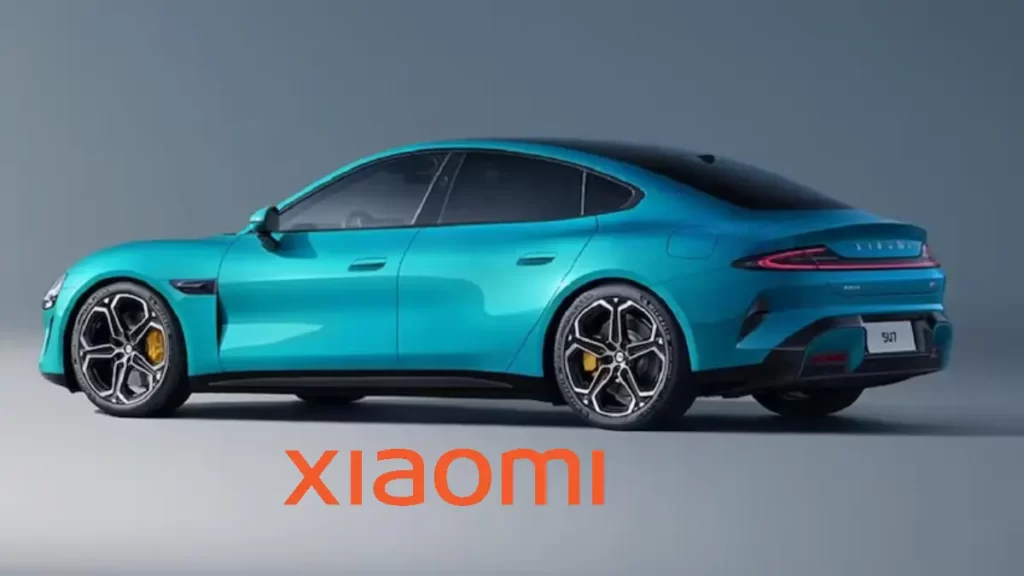On Thursday, Chinese smartphone maker Xiaomi unveiled its first electric vehicle, the SU7. The company promptly declared its ambition to rank among the world’s top five automakers. CEO Lei Jun touted the sedan, with the SI denoting Speed Ultra, as featuring cutting-edge “super electric motor” technology, surpassing Tesla in acceleration speeds. This launch coincides with challenges in the world’s largest auto market, grappling with overcapacity and dwindling demand, fueling a fierce price war.
Xiaomi Unveils Super Electric Sedan with Bold Ambitions
Chief Executive Lei Jun touted the highly anticipated SU7 sedan, highlighting its “super electric motor” technology, capable of outpacing Tesla cars and Porsche’s EVs in acceleration speeds. Despite the looming challenges of a capacity glut and slowing demand in China’s auto market, the SU7 is set to debut in several months. Lei Jun, undeterred, outlined ambitious plans for Xiaomi.
Lei Jun, speaking at the unveiling, expressed determination to become one of the world’s top 5 automakers by working diligently over the next 15 to 20 years. He outlined ambitious plans to elevate China’s overall automobile industry, emphasizing the goal of creating a dream car comparable to Porsche and Tesla.
Seamlessly Smart with Shared Tech Appeal
The SU7’s appeal extends to customers with its shared operating system with Xiaomi’s popular phones and other electronic devices. Drivers will seamlessly access the company’s portfolio of mobile apps. Bill Russo, CEO of Shanghai-based advisory firm Automobility, highlighted Xiaomi’s status as a well-established consumer electronics brand with hundreds of millions of ‘Mi Fans,’ positioning them to break through in the automobile market as it evolves into a smart device.
Extended Range, Winter-Ready, and Autonomous Features
The SU7 will offer two versions, featuring driving ranges of up to 668 km and 800 km on a single charge, surpassing Tesla’s Model S range of up to 650 km. Pricing remains undisclosed, but Lei emphasized its justified cost, albeit higher. Amidst one of China’s coldest Decembers, the SU7 targets winter concerns, boasting fast-charging capabilities in low temperatures and advanced tech for obstacle recognition in challenging conditions.
Lei highlighted Xiaomi’s commitment to industry-leading autonomous driving capabilities. Despite Lei’s ambitions, Xiaomi’s Hong Kong-listed stock finished 0.3% lower, failing to see a boost.
Xiaomi Enters EV Market Amid Smartphone Slowdown
Seeking to diversify beyond its core business due to stagnating smartphone demand, China’s fifth-largest smartphone maker, Xiaomi, has been focusing on EVs—a plan initially announced in 2021. Other Chinese tech companies, such as telecom giant Huawei and search engine firm Baidu, have also ventured into EV development through partnerships with automakers.
Xiaomi, committed to investing $10 billion in autos over a decade, stands out as one of the few new players in China’s EV market to secure approval from authorities wary of exacerbating the supply glut. Production of its cars will take place in a BAIC Group-owned factory in Beijing, with an annual capacity of around 200,000 vehicles.
Zheshang Securities’ third-quarter figures reveal that BYD, with a commanding one-third share, poses the most significant competition for Xiaomi in the crowded Chinese EV market, while Tesla trails with a 9% share.

